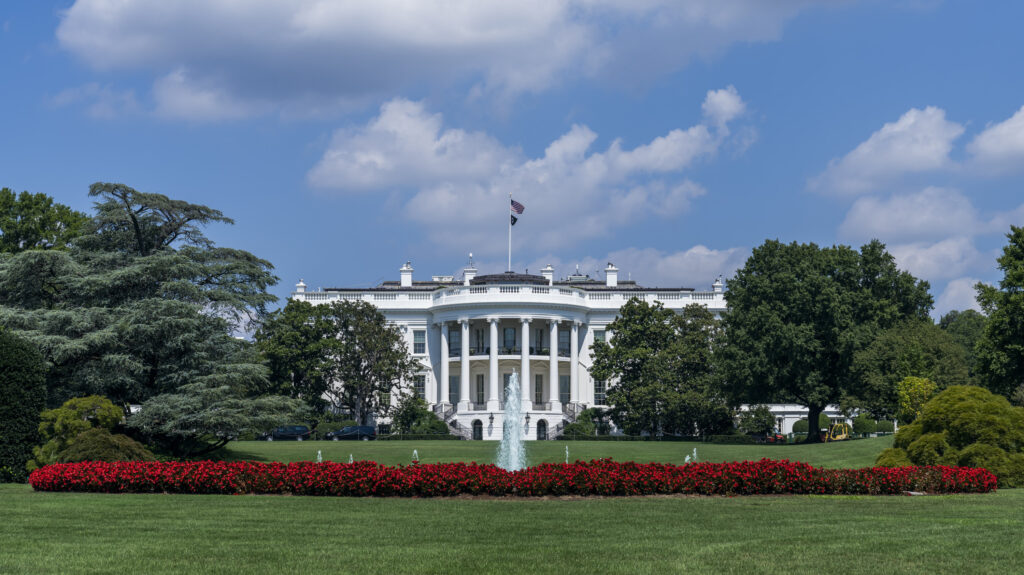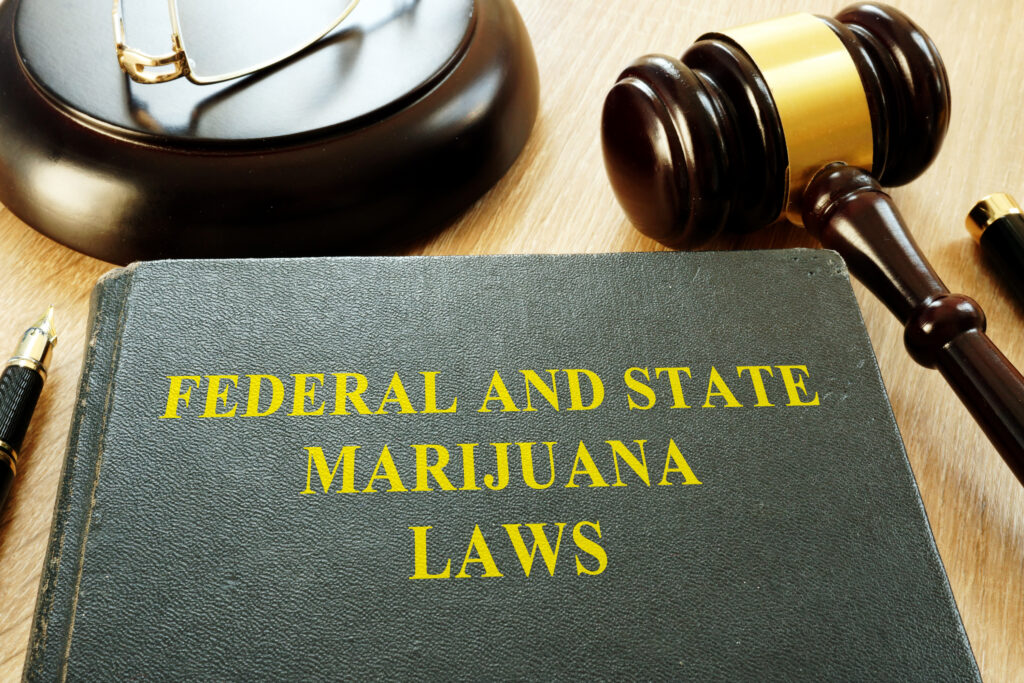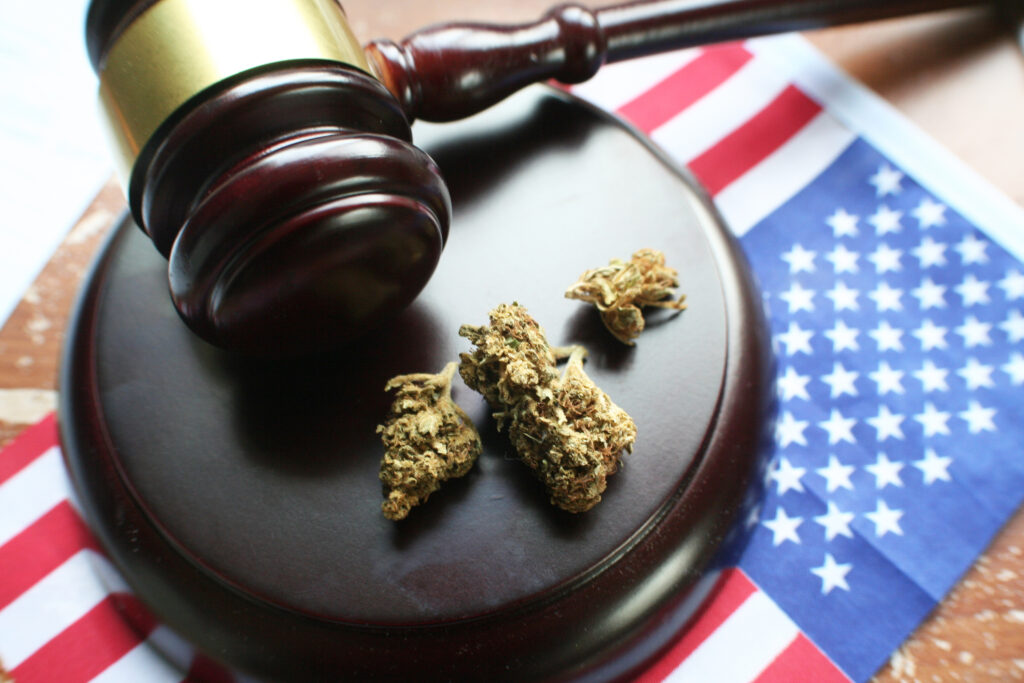Earlier this month, President Joe Biden issued a pardon for all Federal offenses of simple cannabis possession. This is the first step of a three-part plan toward pursuing federal cannabis reform.
“Too many lives have been upended because of our failed approach to marijuana,” Biden said. “It’s time that we right these wrongs.”
However, it’s important to note that a pardon is not the same as an expungement. An expungement seals your criminal record from public access. This means the offense will no longer show up on your record to people such as potential employers, landlords, or loan agents.

What is a Pardon?
By contrast, a pardon does not seal your criminal record in most states. Instead, a pardon relieves you of your penalties and restores your civil rights, such as the ability to vote, sit on a jury, and run for local office. A federal pardon can only be issued by the President.
Someone who has had their record expunged can claim they have no criminal history. But someone who has received a pardon still has a criminal history; the offense has just been forgiven.
In addition to issuing a federal pardon, Biden has asked all governors to do the same, which would pardon state offenses of simple cannabis possession.
Pardons only seal (or are eligible to seal) criminal records in the following states and U.S. territories:
- Alabama
- Arkansas — so long as the offense did not involve “serious violence.”
- Connecticut — records are destroyed three years after the pardon
- Delaware — as of 2020, “all pardoned convictions are the basis for discretionary expungement.”
- Georgia — as of 2020, “a pardon makes a conviction eligible for sealing.”
- Illinois — only expunged if authorized by the pardon
- Indiana — a pardon is “grounds for expungement.”
- Kentucky — a pardon is “grounds for expungement.”
- Louisiana — after the sentence is completed, a pardon is the “basis for expungement.”
- Maryland — non-violent first offenses are eligible for expungement
- Massachusetts — only sealed if the governor orders a state pardon
- Nebraska — as of 2018, “a pardoned conviction may be sealed.”
- Oregon — as of 2019, “seals the record of conviction.”
- Pennsylvania — a pardon “provides grounds for expungement.”
- Puerto Rico
- South Dakota — records are sealed “unless pardon was issued by the governor alone.”
- Tennessee — ”may serve as grounds for expungement.”
- Texas — a pardon provides a “basis for expungement.”
- Washington — limits access to the record
- West Virginia — may provide a “basis for sealing.”
In other words, if your state does not automatically seal a record after a pardon but treats a pardon as the “basis” or “grounds” for expungement, you can seek to have your pardoned offense sealed.
There are even “expungement events” where you can pursue free legal consultation for expungement at community colleges and other places throughout your area.
Who Qualifies for a Marijuana Pardon from President Biden?

The pardon only applies to those with a federal conviction of simple marijuana possession in violation of the Controlled Substances Act (21 U.S.C. § 844) or in violation of D.C. Code 48–904.01(d)(1). It does not apply to any other offenses related to marijuana or other controlled substances. You will not be eligible if you were convicted for possession of cannabis and another controlled substance in a single offense.
Additionally, you must be a U.S. citizen and lawful permanent resident to qualify for the pardon.
According to NPR, over 6,500 citizens who were convicted of simple marijuana possession charges between 1992 and 2021 will qualify for the pardon under federal law or D.C. statute.
Do You Have to Apply for a Pardon Certificate?
Yes. According to the U.S. Department of Justice, the Office of the Pardon Attorney will release a “short application form” along with instructions for how to apply.
“We will make this form available as quickly as we can,” the DOJ states. “Please check back here soon for further announcements.”
If cannabis is rescheduled, it would have an immense impact on how it’s treated under federal law. It would also decrease some of the biggest barriers currently hindering cannabis research.
The pardon only applies to those with a federal conviction of simple marijuana possession in violation of the Controlled Substances Act (21 U.S.C. § 844) or in violation of D.C. Code 48–904.01(d)(1). It does not apply to any other offenses related to marijuana or other controlled substances. You will not be eligible if you were convicted for possession of cannabis and another controlled substance in a single offense.
Additionally, you must be a U.S. citizen and lawful permanent residen to qualify for the pardon.
What’s Next for Federal Cannabis Reform?
Biden’s three-part plan, announced on October 6, 2022, consists of the following:
- Pardon all federal charges of simple cannabis possession
- Encourage governors to pardon state charges of simple cannabis possession
- Have the Secretary of Health and Human Services and the Attorney General review cannabis’ Schedule I status under federal law
If cannabis is rescheduled, it would have an immense impact on how it’s treated under federal law. It would also decrease some of the biggest barriers currently hindering cannabis research.
Key Takeaways: You May Qualify for the Cannabis Pardon

Earlier this month, the White House pardoned all federal charges of simple cannabis possession. This pardon will benefit at least 6,500 people who were convicted of this offense between 1992 and 2021.
However, a pardon is not the same as expungement. Those who are pardoned will still have a criminal record in most states and U.S. territories. That being said, a pardon restores your civil liberties, such as the right to vote, serve on a jury, or hold office in local government.
You will have to apply to receive your pardon certificate if you’re eligible. The Department of Justice has not yet released the application procedure but intends to do so soon.
References
- The White House. (2022, October 6). Statement from President Biden on Marijuana Reform. https://www.whitehouse.gov/briefing-room/statements-releases/2022/10/06/statement-from-president-biden-on-marijuana-reform/
- Devendorf, J. E. (2021, May 14). Is There a Difference Between an Expungement and a Pardon? LawInfo.com. https://www.lawinfo.com/resources/criminal-defense/expungement/is-there-a-difference-between-an-expungement-and-a-pardon.html
- Collateral Consequences Resource Center. (2022, September 15). 50-State Comparison: Pardon Policy & Practice. https://ccresourcecenter.org/state-restoration-profiles/50-state-comparisoncharacteristics-of-pardon-authorities-2/
- The White House. (2022, October 6). A Proclamation on Granting Pardon for the Offense of Simple Possession of Marijuana. https://www.whitehouse.gov/briefing-room/presidential-actions/2022/10/06/granting-pardon-for-the-offense-of-simple-possession-of-marijuana/
- Cornell Law School. (n.d.). 21 U.S. Code § 844 – Penalties for simple possession. LII / Legal Information Institute. https://www.law.cornell.edu/uscode/text/21/844
- Wise, A. (2022, October 10). Biden’s pot pardon will help reverse War on Drugs harm to Black people, advocates say. NPR.org. https://www.npr.org/2022/10/10/1127708285/marijuana-pardon-biden-black-people-war-on-drugs-harm
- U.S. Department of Justice. (2022, October 7). Presidential Proclamation on Marijuana Possession. The United States Department of Justice. https://www.justice.gov/pardon/presidential-proclamation-marijuana-possession